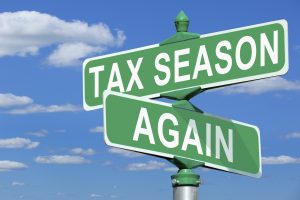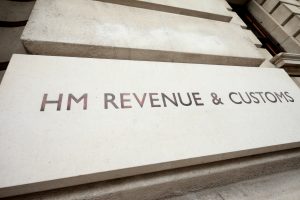- Selling
- Buying
- Landlords
- Renting
- New homes
- House prices
- International services
International offices
China, Hong Kong SAR, India, Indonesia, Malaysia, Middle East, Pakistan, Qatar, Singapore, South Africa, Thailand and Turkey
Learn more - Contact
- News
- Contact
- About us
- My B&R
Top 10 things to watch out for in London property in 2020
|
Getting your Trinity Audio player ready...
|
Contents
- Lettings fees ban
- Tax relief on mortgage interest completely phased out
- Changes to Capital Gains Tax
- Electrical safety regulations
- Energy efficiency standards
- Anti-money laundering checks
- Proposed new regulations for lettings agents
- Letting to tenants with pets
- Proposed Stamp Duty surcharge for overseas buyers
- Buy-to-let mortgage rates at an all-time low
Landlords have faced some major issues over the last few years – new lettings regulations and property taxes as well as the impact of Brexit. And 2020 is likely to deliver more challenges, from a proposed increase in Stamp Duty for overseas buyers to changes to Capital Gains Tax. It’s certainly not an easy time to be a landlord but some preparation now should help keep things running smoothly in 2020.
So if you’re a buy-to-let investor or are thinking about buying a rental property in London, take a look at our 12 top tips for what to look out for in 2020 – and how to prepare for them.
Lettings fees ban
Lettings agents in England and Wales are now banned from charging fees to tenants and in England deposits are capped at the equivalent of five weeks’ rent. The Tenant Fees Act aims to enable tenants to see exactly what fees will be involved when renting a new property, with no hidden costs, but it means landlords must now pay for services such as referencing and inventory checks.
One way for landlords to reduce costs is to negotiate with current tenants to encourage them to renew their tenancy, rather than finding a new tenant when the lease ends. This has the double advantage of eliminating voids. Renewing an existing tenancy at only a slightly higher rent or even the same rent as before can give a higher yield than letting to a new tenant, even if they pay a higher rent. More information on the new fee structure can be found at https://www.gov.uk/government/collections/tenant-fees-act

Tax relief on mortgage interest completely phased out
The Government has been phasing out tax relief on mortgage interest since April 2017. By April 2020, landlords will no longer be able to deduct mortgage interest from rental income to reduce their tax bill but instead will receive a tax credit of 20% of their mortgage interest payments.There isn’t much landlords can do about this. One option is to incorporate/set up a business in which to own their properties but this could work out more expensive. This is a complex area so consult an accountant who can advise on the pros and cons.

Changes to Capital Gains Tax
From April 6th 2020, CGT incurred following the disposal of a residential property must be paid within 30 days of the completion date. At present, a taxpayer would report any capital gains on their self-assessment tax return, with the resulting tax to be paid by January 31st following the year in which the gain was made. Again, there is little a landlord can do about this – tax must be paid when it is due but do consult your accountant for further advice.

Electrical safety regulations
New regulations requiring landlords to carry out regular electrical safety checks are expected to be introduced in 2020. These will include compulsory five-year checks of electrical installations in rental properties.
Make sure you have a trusted and reliable electrical contractor already lined up to carry out any work necessary before the regulations are introduced so that you do not risk breaking the rules and the resulting fine. If you use a professional property management agent, they will organise this for you. More information can be found at https://www.gov.uk/government/news/housing-minister-tightens-up-rules-on-electrical-safety-to-better-protect-renters

Energy efficiency standards
From April 2018, the Government imposed new Minimum Energy Efficiency Standards (MEES) requiring rental properties to meet a minimum EPC (Energy Performance Certificate) rating of ‘E’ or more for new lets and renewals of tenancies. A second deadline will be imposed from April 2020, meaning that a minimum ‘E’ rating will be necessary for all existing tenancies too. This means that landlords will no longer be able to continue to rent out a property with an EPC rating of less than ‘E’.
Apartments in new residential buildings should already meet these requirements and you should have an EPC certificate to show this. If you own an older, period property, you may need to organise an energy assessor to carry this out.

Anti-money laundering checks
The new EU Directive on money laundering means that letting agents will have to carry out checks on landlords who earn more than 10,000 euros (approximately £8,900) a month – whether this comes from a single property or an entire portfolio.
Professional lettings agents should already be preparing for this so make sure you use a reputable agent who will carry this task out for you.

Proposed new regulations for lettings agents
The Government is expected to announce plans for increasing regulation of the lettings industry. This includes a new licensing regime, a Code of Practice and training requirements for lettings agents. In our opinion, this is good news and will help to eliminate the less professional element of the industry. In the meantime, make sure you use a letting agent who belongs to ARLA Propertymark.

Letting to tenants with pets
The Government is revising its Model Tenancy Agreements (which are encouraged for use throughout England but not mandatory), to encourage more landlords to accept tenants with well-behaved pets. The Tenant Fees Act means that landlords can no longer take a higher deposit from tenants with pets but many are instead setting the rent a little higher to take into account any additional wear and tear. We have always encouraged landlords to consider renting to tenants with pets. Most are very responsible and we rarely have any problems. With so many tenants owning pets this opens up the landlord’s potential market for their property considerably.

Proposed Stamp Duty surcharge for overseas buyers
The Government has proposed a 3% Stamp Duty surcharge for non-UK residents who wish to buy UK property. No timescale has yet been set for this. If you are planning to buy a London (or UK) property in the next few months, we would suggest doing your research now and making your purchase as soon as you are able in order to ensure the transaction is completed before any new surcharge is introduced.

Buy-to-let mortgage rates at an all-time low
Buy-to-let mortgage rates remain historically very low and with the current competitive loans market, buy-to-let rates are now nearly as low as residential mortgage rates. Leveraged deals are very popular with overseas investors, who are benefiting from extremely competitive interest rates.
Compare current interest rates. If you took out a buy-to-let mortgage several years ago you may find that you can now save money by remortgaging, either with your current lender or by moving to a new lender.

Sterling has had a volatile few years since the Brexit vote and overseas investors have been able to benefit from the weakness of the currency. However, the recent Conservative election win and more certainty on the outcome of Brexit means that Sterling has now started to strengthen a little. If you are an overseas investor planning to buy a property in London in the near future, consider doing so sooner rather than later as, if Sterling continues to strengthen, you could find that the property costs you more comparatively due to the less favourable exchange rate.
Generally, we are more optimistic about the London property market as we move into 2020, but of course, there are plenty of challenges for landlords to face. We aim to keep you updated with all the latest news so sign up today to regularly receive our blogs.
Sign up to our newsletter
Subscribe
How much is your property worth?
Media enquiries
About the Author
Marc has been a board director since 2001 and oversees the company’s rental operations as well as developing new business. He is instrumental in the company’s expansion and works closely with Managing Director Anita Mehra to develop its core services. Read more about Marc von Grundherr here - Read full profileView all posts by Marc von Grundherr














